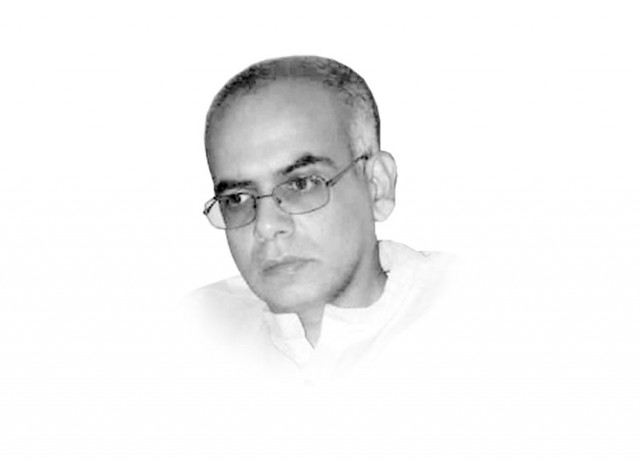Grappling with sectarian intolerance
Sectarianism in Pakistan escalated due to the proxy conflict between Saudi Arabia and post-revolution Iran

Sectarian identity has become politicised as a result of both domestic and international factors. Sectarianism in Pakistan escalated due to the proxy conflict between Saudi Arabia and post-revolution Iran, further fuelled by the anti-Soviet Afghan jihad, which was supported and financed by not only Saudi Arabia, but the US as well. The Pakistan government’s own ambiguous relationship with sectarian groups has further served to exacerbate the problem.

Sectarian conflicts have been growing in frequency over the past three decades, with an average of more than 1,000 people killed or injured in sectarian attacks annually between 2009 and 2013, with the Shias suffering the brunt of this violence. These figures are cited in a new special report published by the US Institute of Peace, titled “Religious Authority and the Promotion of Sectarian Tolerance in Pakistan”.
The above-mentioned report includes a survey of more than 1,500 men in Punjab and another 800 in Quetta, aiming to directly assess prospects for sectarian harmony. For this purpose, the survey asked respondent questions like “To what extent do you believe that a politician of a different sect can represent your concerns or solve the problems you and your community face?”, “To what extent do you agree with the statement that parents should not punish their children for marrying members of different sects … ?”, and “To what extent do you agree with the statement that, if violence arises between Shia and Sunni communities, you should support the other sect if your group initiated the violence?”
The survey found in both Punjab and Quetta that individuals concerned about extremist religious groups operating in society, were themselves likely to express tolerant sectarian views. Shia respondents to the survey consistently endorsed the need for tolerance more than Sunni respondents. Interestingly, Shias in both Quetta and Punjab were also more likely to express tolerant views of Ahmadis than Sunni respondents. Perhaps, the Shias’ status in Pakistan has now made them more sensitive to the dangers of sectarian intolerance.
However, this survey’s findings contradict conventional wisdom about intolerance and its relationship to educational background and economic status. High-income individuals were surprisingly less open to the idea of politicians of another sect representing their interests, and they were also less likely to hold their own sect accountable for use of violence. Moreover, attending madrassas was not found to be a predictor either, since these individuals were no more or less likely to express agreement to the above questions compared with other survey respondents.
There have been some recent positive steps taken to combat sectarianism in the country. Earlier this year, the Pakistan Ulema Council issued a statement saying that no one belonging to an Islamic sect could be declared an infidel. Some months ago, the Ministry of Planning, Development and Reform also hosted a roundtable conference on interfaith harmony. There have been grass-roots efforts to combat sectarian intolerance through cross-sectarian religious forums, such as the establishment of a sect-free mosque in Islamabad last year. Such initiatives are encouraging signs of attempts to actively confront sectarian intolerance, which merit recognition as well as wider replication.
Published in The Express Tribune, November 25th, 2014.
Like Opinion & Editorial on Facebook, follow @ETOpEd on Twitter to receive all updates on all our daily pieces.
















COMMENTS
Comments are moderated and generally will be posted if they are on-topic and not abusive.
For more information, please see our Comments FAQ